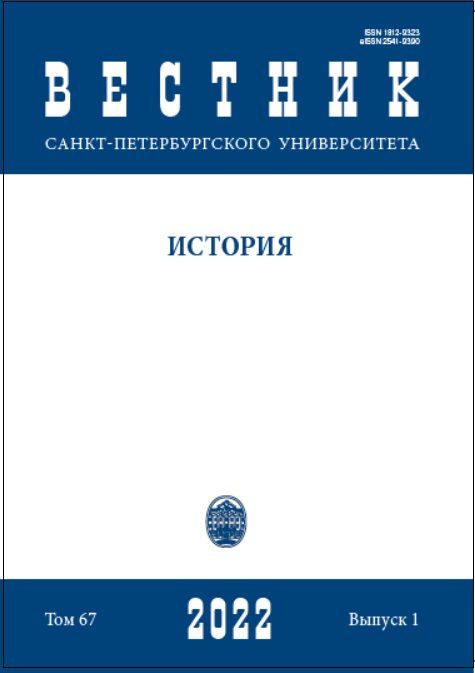The formation of American post-war Belarusian Studies
DOI:
https://doi.org/10.21638/11701/spbu02.2022.117Abstract
American post-war Belarusian studies at its initial stage differed from similar processes in other countries. The CIA, which was interested in using the Belarusian emigration for its own purposes, the Congress and individual senators with whom the leadership of the Belarusian-American Association actively worked, initially played a significant role. The CIA supported the activities of the Chairman of the Rada of the Belarusian People's Republic (in exile) Nikolai Abramchik, who was one of the first Belarusian emigrants to publicly declare Moscow's anti-Belarusian policy, using such concepts as the Russian “genocide of the Belarusian people”, “occupation of Belarusian lands", etc., calling on America to “protect the oppressed Belarusian people”. In 1954, a special commission of the Congress held hearings on the topic “The Communist seizure and occupation of Belarus”, during which a kind of methodological guidelines for the "correct" study of the history of Belarus were determined. That in the conditions of McCarthyism and the fight against the "red danger", allegedly emanating from Moscow, fully fit into the process of forming the so–called totalitarian concept in American Russian studies (then - Sovietology), and hence Belarusian studies. It was in such a difficult political and ideological situation that the Russian Research Center of Harvard created the first scientific study authored by N.P. Vakar “Belarus. The Creation of a Nation”, which will be published in 1956, and which will not only receive general recognition in the American scientific community, but will also displace all kinds of political pamphlets from the academic space.
Keywords:
History of Belarus, American Belarusian studies, Belarusian post-war emigration, US Congress
Downloads
Downloads
Published
How to Cite
Issue
Section
License
Articles of "Vestnik of Saint Petersburg University. History" are open access distributed under the terms of the License Agreement with Saint Petersburg State University, which permits to the authors unrestricted distribution and self-archiving free of charge.





